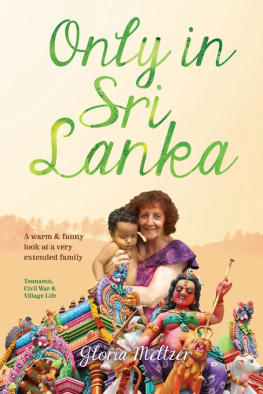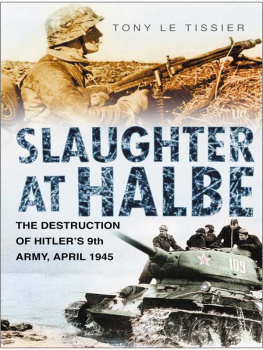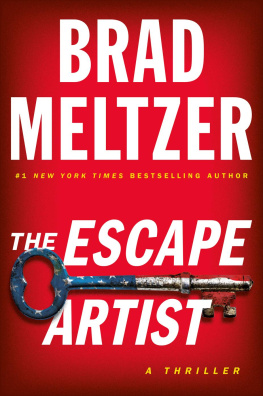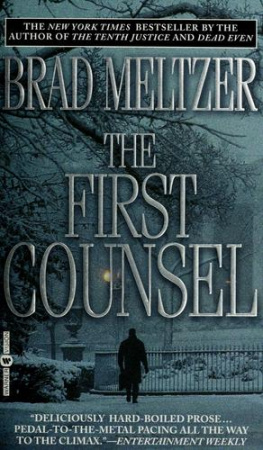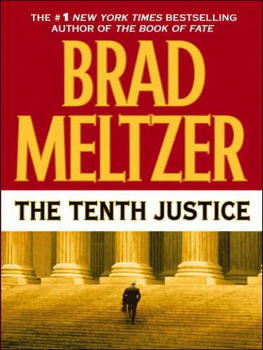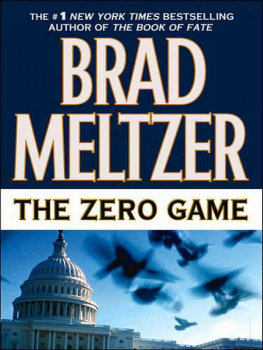The University of Chicago Press, Chicago 60637
The University of Chicago Press, Ltd., London
2019 by The University of Chicago
All rights reserved. No part of this book may be used or reproduced in any manner whatsoever without written permission, except in the case of brief quotations in critical articles and reviews. For more information, contact the University of Chicago Press, 1427 East 60th Street, Chicago, IL 60637.
Published 2019
Printed in the United States of America
28 27 26 25 24 23 22 21 20 19 1 2 3 4 5
ISBN-13: 978-0-226-62563-8 (cloth)
ISBN-13: 978-0-226-62577-5 (e-book)
DOI: https://doi.org/10.7208/chicago/9780226625775.001.0001
The University of Chicago Press gratefully acknowledges the generous support of the Division of Humanities at the University of Chicago toward the publication of this book.
Names: Meltzer, Franoise, author.
Title: Dark lens : imaging Germany, 1945 / Franoise Meltzer.
Description: Chicago ; London : The University of Chicago Press, 2019. | Includes bibliographical references and index.
Identifiers: LCCN 2019005348 | ISBN 9780226625638 (cloth : alk. paper) | ISBN 9780226625775 (e-book)
Subjects: LCSH: World War, 19391945Destruction and pillageGermany. | World War, 19391945GermanyAerial operations, Allied. | World War, 19391945GermanyInfluence. | World War, 19391945GermanyPsychological aspects. | World War, 19391945GermanyPhotography. | World War, 19391945GermanyArt and the war. | Ruins, ModernGermany. | Ruins in art. | Civilians in warGermany. | World War, 19391945Moral and ethical aspects.
Classification: LCC D810.D6 M38 2019 | DDC 700/.458405343dc23
LC record available at https://lccn.loc.gov/2019005348

This paper meets the requirements of ANSI/NISO Z39.48-1992 (Permanence of Paper).
for Dianne Levitin and
for Raquel Scherr
My mother was a French woman, married to my father, an American in the State Department. But it was in Germany that I spent my childhood, so that I grew up speaking three languages: my father spoke only English to me, my mother only French, and Marta, our housekeeper, only German. It was, I suppose, rather an odd way to grow upparticularly given the postwar situation in Germany. At the end of the war, there was still a great deal of anger in Germany at the Allies (Russians, British, French, Americans). For many Germans, there was anger, too, at the loss of the war. And there was anger among those Allies who, for one reason or another, were obliged to live in Germany and were less than happy about it. As children, we sensed this anger from all sides, but without knowing what was motivating it.
When I was three, in Bad Nauheim, we lived in a large house that had been requisitioned by the United States government. An important Nazi had lived in it. One day, some German kids who were from the neighborhood threw me into a bed of rose bushes. I emerged with thorns all over my body. I remember sitting on my mothers lap, crying, while she, plied with tweezers, angrily removed the thorns from my flesh. Sales boches (dirty Krauts), she muttered with every extracted thorn. I didnt know what that meant, but I knew she was furious. There was something about her anger that I didnt really understand; it seemed to go beyond what had happened and was in no way directed at me.
When I was six, in Frankfurt, some friends of mine and I went trick-or-treating on Halloween. There, we lived in an American apartment complex, but there were a few Germans also in the building. When we knocked at one door, the window at the top of the door was opened by a German woman. We couldnt see her, but could hear her irritation when she asked us what we wanted. Trick or treat! we yelled happily, but I remember we werent sure she had understood. Just a minute, she said in German, and closed the window. A few minutes later, the window was opened again and a pail full of what must have been raw sewage (including excrement) was thrown at us. We were drenched in stench, compelled to return home. That was the end of our Halloween that year. The incident remained a mystery to me for a long time; we had been so shocked by her intense anger (and the smelly water). Years later, I realized how spoiled, costumed little American children excitedly demanding candy must have seemed to that German woman, who clearly would have had no idea what American Halloween was.
From around the age of five, I had a recurring dream for many years: Im in a small German town and Im lost. The town is gray, dark, and full of ruins. I wander around trying to find some street I recognize, but I cant. Finally, I sit down on a curb in the middle of the town square. A nice German lady approaches and asks, Are you all right, little girl? Do you need help? Im okay, I tell her (we are speaking German). Im just waiting to wake up. I know this has to be a dream. I must have frequently felt lost, between three languages, three cultures, and the tension that seemed, even to me at that young age, palpable everywhere. The dream seemed to be saying that if I waited long enough, there would be an explanation, or at least an escape.
Hunger was pervasive in the German populace. Our gardener in Bad Nauheim kept taking our vegetables, telling my mother in sign language (since she didnt understand German) that the rabbits had eaten them. She pretended to believe him. Around the age of four, I found a homeless man and struck up a friendship of sorts with him. He was hungry, he said,so I brought him home. You said we had to help the poor, I said to my mother, and he needs food. You have to feed him and give him a bedroom. Years later she told me how difficult it was to explain to me that this man couldnt move in with us. She did give him food, but Marta was yelling at him to go away.
Marta, a Berliner, had been working for a French family in Brazil before the war. When Hitler put out a call to ethnic Germans abroad to return to the Fatherland, Marta answered that call. She returned to Berlin and was caught in the bombing, but managed to survive. When I was born, my parents hired her to take care of me because she spoke fluent French. As I got older, she became our housekeeper. In the meantime, it had become clear that I was speaking French with a German accent. My mother then told Marta to speak German to me. At least shell speak that with the proper accent, my mother is reported to have said.
Marta often took me with her into the German town next to the American compound. The town was dark and gray, and there were still many ruins (a town, in other words, like the one in my recurring dream). Marta bought bread there (far better than the bread at the PX), and liked to chat with friends and other nannies. One time, she met a friend and told her that she was sure there was another war coming. No, no, said the woman, I dont believe that. But Marta was clear on this: You can be sure, she said quite fiercely, that there will soon be another war. I know it. I couldnt figure out how she could know that, but I always believed everything she said, so it frightened me. Why will there be another war? I asked her. Because there just will be, was her unhelpful (but firm) response.


 This paper meets the requirements of ANSI/NISO Z39.48-1992 (Permanence of Paper).
This paper meets the requirements of ANSI/NISO Z39.48-1992 (Permanence of Paper).
